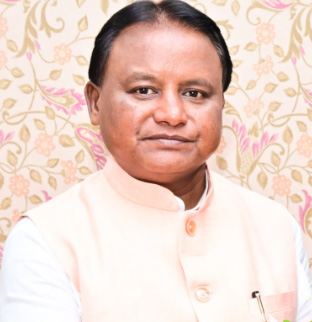Bhubaneswar: The GST Council has accepted several demands of the State Government on imposition of the GST on several items.
In a written statement in the State Legislative Assembly, Chief Minister Mohan Charan Majhi, who holds the Finance portfolio, said the Goods and Services Tax (GST) Act, 2017 came into effect from July 1, 2017.
GST is a destination-based tax and supply of goods and services within the State attracts State GST (SGST) and Central GST (CGST) whereas supply of goods and services between different States attracts Integrated GST (IGST), he said.
The SGST accrues to the State exchequer whereas CGST goes to Central Government while IGST collected on interstate supply of goods and services is shared equally between the Centre and the consuming State at the end of each month, Majhi said.
The Chief Minister said Odisha has raised several issues before the GST council in the past pertaining to rate rationalization. In order to protect the interest of Tribal people of Odisha involved in making cups, plates and ropes from Sabai grass, Sal leaves and Siali leaves, the State Government had demanded a waiver of GST on it. As a result, GST on these goods was reduced from 18% to 5%.
Subsequently, the State Government in January 2018 had demanded exemption of GST on plates and cups made out of Sal/Siali leaves and Sabai ropes made up of Sabai grass. As a consequence, these items were finally exempted from being taxed as per the decisions taken in the GST Council, he noted.
Similarly, State Finance Department, in July 2017, had demanded exemption of GST on handicraft goods. As a result, taxes on most handloom and handicraft goods have been reduced to 12% or 5%, he pointed out.
In the larger interest of the State, the then Chief Minister in November 2018, had requested the Union Finance Minister and Chairman, GST Council to reduce GST on Tendu leaves from 18% to 5%.
Further, the then Finance Minister in January 2023 requested the GST Council, to waive GST on Tendu leaves. However, as most of the Tendu leaves producing States like Madhya Pradesh and Chhattisgarh opposed the proposal for reduction of tax rate on Kendu/Tendu leaves, the proposal has not been approved by the Council so far.
Further, the Government of Odisha has supported a proposal in the 52nd meeting of the GST Council in October 2023 for reduction of GST on food preparation of Millet Flour in powder form containing at least 70% of Millets.
The Fitment Committee recommended for reduction of tax on food preparation of Millet Flour in powder form containing at least 70% of Millets in pre-packaged and labelled form from 18% to 12%.
However, Odisha supported the reduction of the GST from 18% to 5%. Accordingly, the tax rate on the same has been reduced by the GST Council to 5%, the Finance Minister said.
The State has also submitted a proposal to the GST Council to exempt services provided by District Mineral Foundation Trust (DMFT) in the form of activities undertaken for the development of mining-affected people in the mineral-rich areas.
The Council in its 52nd Meeting approved the recommendations of the Fitment Committee to clarify that DMFT is a Governmental Authority and thus eligible for the same exemptions as available to any other Governmental Authority.
The Council has not accepted only one demand to extend the GST compensation period for another five years.
As the gap between the protected revenue and the actual revenue in the State had increased during the periods of COVID Pandemic, Government of Odisha raised the issue in the 47th GST Council meeting held in June 2022 at Chandigarh to extend the compensation for another five years beyond 30.06.2022. However, it has not been considered so far, added the CM.


